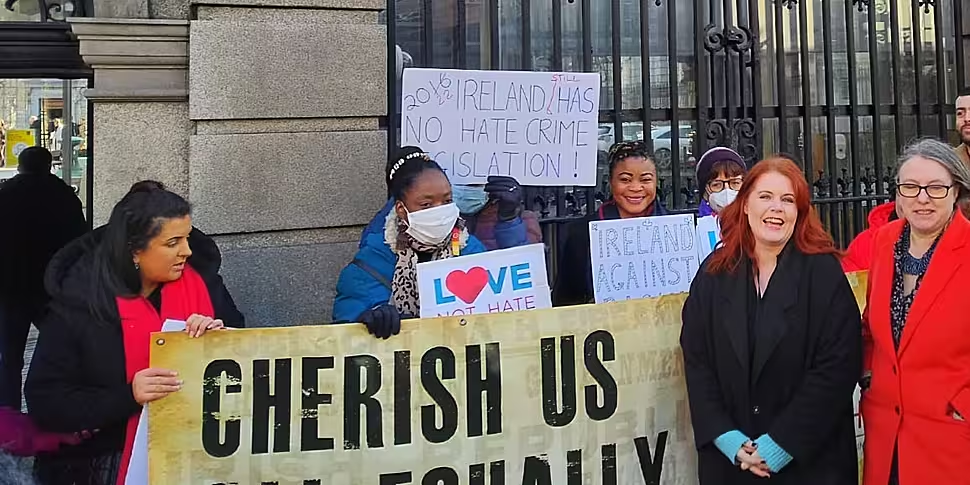A petition calling for promised hate crime legislation to be enacted immediately has been handed in to the Oireachtas.
The Irish Network Against Racism (INAR) petition, signed by more than 15,000 people, calling for the legislation to be accelerated through the Oireachtas.
The Criminal Justice (Hate Crime) Bill 2021 aims to introduce new aggravated offences for crimes motivated by prejudice.
Under the bill, crimes motivated by hatred of eight ‘protected characteristics’ will carry tougher sentences than they would otherwise.
These are:
- Race
- Colour
- Nationality
- Religion
- Ethnic or national origin
- Sexual orientation
- Gender
- Disability
The General Scheme of the bill was published back in April and INAR is now calling for the legislation to be enacted without delay.
At the demonstration outside Leinster House today, INAR spokesperson Maria-Elena Costa Sa from the Irish Network Against Racism said minority groups need to be protected.
“I am happy that it is on there,” she said.
“I know it has cross-party consensus so I am happy that it is actually on the books but we are worried that this is going to take time to progress through the Dáil.
“We don’t have that time. As ethnic minorities we want to see that rushing through the Dáil and actually we want to feel those protections as a society now.”
On Newstalk Breakfast this morning, Gript Editor John McGuirk and Labour TD Ivana Bacik debated the new legislation.
Mr McGuirk suggested the laws criminalise the thought behind a crime rather than the crime itself.
Deputy Bacik rejected his argument insisting: “This is not about punishing motive; this is clearly about punishing harm.”
“You are taking an existing crime, such as assault for example, and you are enabling a prosecutor to say, I am going to prosecute in this case for assault aggravated by prejudice,” she said. “So, it is an aggravated crime.”
“Aggravation by prejudice is simply another factor to be taken into account and the reality is that, for the victim concerned, there is a difference if an assault is motivated by hatred.
“If, for example, somebody feels they were targeted because of their race, their gender or their disability, then there is an additional harm to the victim – and there is plenty of evidence for that."
Mr McGuirk argued that assaults should be prosecuted in the same manner regardless of the motivation behind them.
“The ultimate reality is that, if you are assaulted, you are assaulted,” he said. “The crime is not what you thought in your head. The crime is not what you did.
“If somebody is punched in the face, they have been attacked and that crime should be punished identically no matter the reason somebody has for doing it or committing it.
“The difficulty with hate crime is, it doesn’t make what you did a crime, it makes what you thought when you were doing it a crime.”
You can listen back here:









